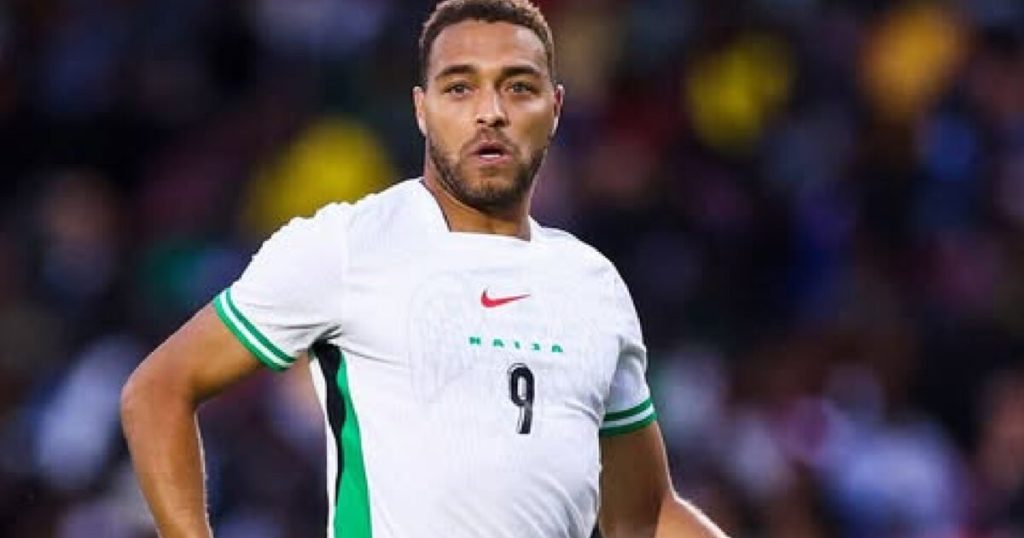The Nigerian Football Federation (NFF) ignited a firestorm of criticism following their official post-match report, which pointedly blamed striker Cyriel Dessers for the Super Eagles’ disappointing 1-1 draw against South Africa in a crucial World Cup qualifier. The NFF’s statement, signed by its Director of Communications, Dr. Ademola Olajire, criticized Dessers’ performance as “too slow,” ineffective in aerial duels, and failing to invigorate the Nigerian attack. This public censure of Dessers, coupled with criticism of captain William Troost-Ekong for an own goal, triggered widespread condemnation across social media platforms, with fans, journalists, and even Super Falcons star Asisat Oshoala expressing their outrage at the NFF’s approach.
The NFF’s decision to single out individual players, particularly Dessers, was widely perceived as unprofessional, scapegoating, and potentially detrimental to team morale. Social media users questioned the NFF’s motives, with some speculating about a possible agenda against the Panathinaikos forward. The overwhelming sentiment was that the NFF’s statement was a shameful display of poor leadership and a damaging public relations blunder. Many argued that football is a team sport, and attributing blame to individual players in such a blatant manner undermined the collective responsibility required for success. This public dressing-down was viewed as counterproductive, potentially discouraging players and creating unnecessary tension within the squad.
The criticism extended beyond the content of the statement to the NFF’s overall communication strategy. Many commentators argued that a national football federation should adopt a more constructive and supportive approach, focusing on team building and positive reinforcement rather than publicly criticizing individual players. The NFF’s statement was seen as a departure from professional standards, reflecting poorly on the organization’s leadership and communication skills. This incident raised broader questions about the NFF’s ability to effectively manage the national team and foster a positive environment for players to thrive.
Asisat Oshoala, a prominent figure in Nigerian football, added her voice to the chorus of disapproval, expressing her disappointment with the NFF’s actions. Her public condemnation amplified the message of discontent and further highlighted the widespread perception of the NFF’s misstep. Oshoala’s intervention underscored the damaging nature of the NFF’s statement, extending its impact beyond the immediate aftermath of the match and solidifying the negative narrative surrounding the incident. Her involvement elevated the issue to a broader discussion about the NFF’s leadership and its relationship with the players.
The backlash prompted calls for Dessers to reconsider his international future, with some fans urging him to quit the national team altogether. The incident highlighted the potential consequences of the NFF’s actions, potentially alienating players and discouraging them from representing their country. The public nature of the criticism placed Dessers in a difficult position, potentially affecting his confidence and his willingness to continue playing for the Super Eagles. The incident raised concerns about the NFF’s ability to retain and motivate key players, impacting the team’s overall performance and future prospects.
The NFF’s handling of the post-match report sparked a larger debate about the organization’s competence and its role in Nigerian football. The incident exposed underlying tensions and frustrations with the NFF’s leadership, adding fuel to existing concerns about the state of Nigerian football. The widespread criticism served as a public referendum on the NFF’s performance, highlighting the urgent need for improved communication, stronger leadership, and a more supportive approach towards the players. The incident underscored the importance of fostering a positive and constructive environment within the national team to achieve success on the international stage.














